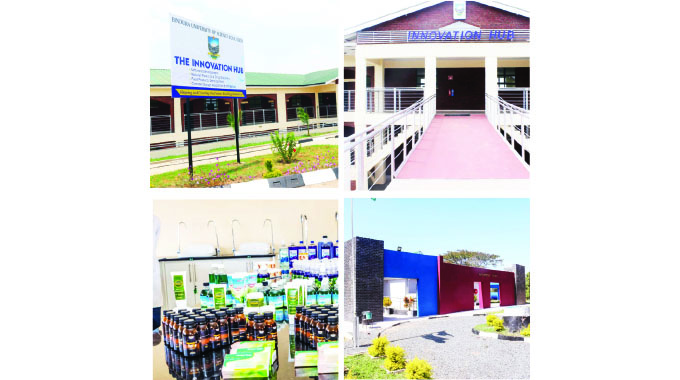Creatives plot surviving copyright wars

Mbulelo Mpofu-Bulawayo Bureau
Zimbabwe recently joined the rest of the world in commemorating World Intellectual Property (IP) Day, a day set aside to raise awareness on intellectual property issues, which have plagued the cultural and creative industries (CCIs) in Zimbabwe.
World IP Day was held under the theme, “Women and IP: Accelerating Innovation and Creativity”.
Locally, commemorations were organised by Companies and Intellectual Property Office of Zimbabwe (CIPZ) in collaboration with African Regional Intellectual Property Organisation (ARIPO), and Intellectual Property Rights and Innovation in Africa (AfrIPI).
IP has a very broad spectrum which encompasses industrial property and copyright.
Under these are copyright and related rights, geographical indications, traditional knowledge and expressions of folklore, and new plant varieties.
Bulawayo creatives and IP practitioners converged at Tredgold Building in Bulawayo for a march around the City Centre to spread the word about IP issues in Zimbabwe.
Among some of the esteemed personnel in attendance were veteran author, Barbara Makhalisa-Nkala, who shared her success story on copyright.
Her literary works have been subjected to unlawful duplication, making their way to pavements rather than bookshops, robbing her of her rightful revenue and profits.
Such a day was necessitated by the need to arrest piracy and other copyright evils that plague CCIs in the precinct.
Makhalisa-Nkala said piracy had the potency to extinguish the publishing flame and rob a lot of writers of their livelihoods if it is not arrested.
“Back in the 90s, I saw book piracy booming in Ghana and I didn’t know that, a few years down the line, we would be crying foul in our own country with people selling our books on the pavements of our city streets. This unethical practise undercuts the author and the publisher,” she said.
In the fight against copyright infringement, not only do authors suffer but bookshops are not spared as well.
In a recent interview, College Press Publishers managing director, Ms Natsai Gurupira said piracy was prejudicing them of a lot of money.
“The authors of the books are no longer getting what they are supposed to get because of this photocopying system. After taking years writing a book, someone just photocopies it and sells it which means you as the author get nothing,” she said.
On the music scene, the Copyright and Neighbouring Rights Act stipulates that Copyright shall be entitled towards original and literary artistic works where such protection shall be vested towards the authors, on the sole fact of the creation of original works, irrespective of their form of expression, their quality and the purpose for which they were created.
This is due to the requirement for artistes to understand publishing rights and master rights. The musical composition of a song — the lyrics, melodies, and so on — is created by songwriters who hold the publishing rights (albeit, in most cases, they sign a publishing deal and their publisher owns it in addition to half the royalties).
Meanwhile, the version of a song being played comes from the recording artiste, who owns the master rights (albeit they normally sign a record deal, and the record company owns the masters and the majority of the revenue).
Ignorance of the aforementioned has become an issue for artistes who collaborate, and in worst-case scenarios, some have been hauled to court and suffered harsh penalties.
Universities are also custodians of IP and representatives from the National University of Science and Technology (NUST) and the Midlands State University (MSU) were in attendance.
NUST’s Department of Publishing as also at the fore of organising the day and its representative in IP issues, Dr Sibongile Ngwenya, underscored the need for the celebrations to be held in Bulawayo as the “culture hub” of the country.
“The celebrations had to be held in Bulawayo because it is the culture hub of the country. We were pleased as a department to actively participate in preparing for the day and raising awareness around IP. Our students have undertaken research on curbing and arresting piracy especially in the book industry. We hope to hold copyright campaigns in the city to create awareness and educate the general public on copyright and other forms of IP,” she said.
The intellectual theft conveyor belt once landed a Marondera headmaster in hot water after he was caught distributing photocopied Ordinary Level textbooks to his students, a breach of copyrighted material.
If piracy and copyright infringement are to be eradicated, the onus should not be placed solely on those in the CCIs, but on everyone, as IP issues affect everyone.










Comments